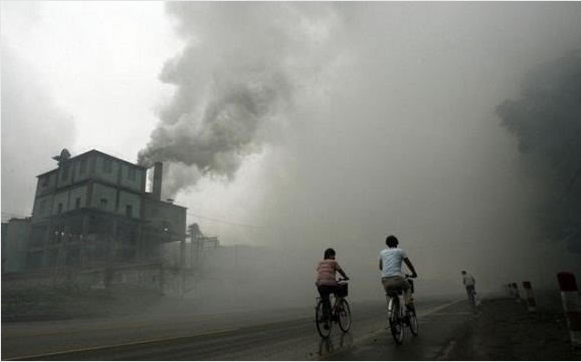
Fashion hasn’t always been the most conscious when it comes to environmental and humane standards. We’ve read the stories … and then we shopped. Countless egregious acts committed in the name of fashion and profits haven’t prevented us from maxing out our credit cards or staying fresh from season to season. From fatal fires in factory warehouses to sweat shops filled with toddlers making our sneakers, we know it’s wrong, but in essence, we could care less. And the growth of the fashion industry continues to support this notion.
The last time people got angry and took action against big business exploiting women and children in the developing world was during the World Trade Organization riots of 1999. Seattle college students with a grudge and their comrades protested globalization. Now that we’re in this recession, these same college students are probably now working for the same organizations they once despised. Go figure.
Major companies are always in the limelight for one reason or the other. Most recently, discount retailer Wal-Mart — the budget bully that most of us will still be visiting for inexpensive Thanksgiving supplies — is currently in the news as under-paid employees who receive no health insurance strike for livable wages.
In his article for the Guardian UK, writer Simon Birch states, “Many of the world’s biggest and most elite fashion houses pay virtually no regard to corporate ethics and have yet to take even the first steps on reporting on the social and environmental impact of their operations.”
After a damning 2011 report — See the Dirty Laundry report here — by Greenpeace linking major corporate brands Nike, Adidas, and Puma to toxic water pollution in China, H&M teamed up with the brands to develop a joint road map towards zero discharge of hazardous chemicals by 2020. The ban is set to permanently take effect January 1st of 2013.
Beloved Spanish fashion brand Zara has recently come under scrutiny for its use of carcinogenic chemicals in its clothing. Oddly enough, Zara proudly displays its a loose “environmental commitment” policy on its site as though this gentle pat on the back will pacify its overall lack of ethical practices.
A look at Zara’s “values”:
- “We save energy. The eco-friendly store.
- We are implementing an eco-friendly management model in our shops in order to reduce energy consumption by 20%, introducing sustainability and efficiency criteria. This management model sets out measures to be applied to all processes, including the design of the shop itself, the lighting, heating and cooling systems and the possibility of recycling furniture and decoration.
- We produce less waste and recycle. Recycling hangers and alarms, which are picked up from our shops and processed into other plastic elements, is an example of our waste management policy. Millions of hangers and alarms are processed each year and both the cardboard and plastic used for packaging are also recycled.
- We use ecological fabrics. Organic cotton.
- Zara supports organic farming and makes some of its garments out of organic cotton (100% cotton, completely free of pesticides, chemicals and bleach). They have specific labels and are easy to spot in our shops.”
We dare to pose the question: Should all of our favorite clothing lines have an environmental policy and if, so, how do we ensure compliance and transparency so that we know they are actually doing the work?






